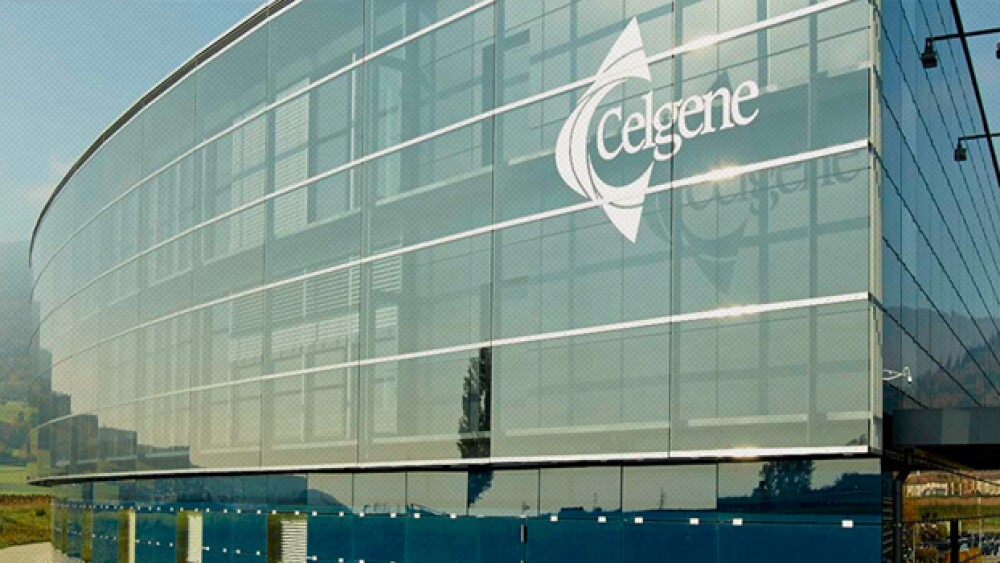Ahead of being absorbed by Bristol-Myers Squibb, Celgene forged a strategic collaboration with two companies to develop immuno-oncology treatments and cell therapies.
Ahead of being absorbed by Bristol-Myers Squibb, Celgene forged a strategic collaboration with two companies to develop immuno-oncology treatments and cell therapies.
First, Celgene struck a deal with Boston-based Kyn Therapeutics to develop novel immuno-oncology therapies. Celgene provided $80 million in an upfront payment, as well as an equity investment to exclusively license Kyn’s Kynase (kynurenine-degrading enzyme) and aryl hydrocarbon receptor (AHR) antagonist programs. The companies will harness Celgene’s expertise in oncology and its pipeline of products and combine it with Kyn’s own pipeline of products to focus on areas of high unmet need.
Under terms of the agreement, Kyn will be responsible for R&D activities through Phase Ib, at which time Celgene can opt in to lead and fund global development and commercialization of the licensed programs.
AHR and kynurenine are associated with immunosuppression in a range of tumor types through multiple cellular metabolic mechanisms that modulate both innate and adaptive immunity. These attributes make them compelling targets for investigative therapies, in particular in patients who do not fully benefit from current treatments like checkpoint inhibitors, Kyn said in its announcement. If the collaboration is successful, Kyn is eligible for substantial clinical, regulatory and commercial milestone payments.
Mark Manfredi, Kyn’s president and chief executive officer, said his team of researchers has been focused on taking a lead in the field of immunometabolism. He said Celgene’s R&D capabilities and focus on groundbreaking biology are a strong strategic fit for Kyn’s programs.
Robert Hershberg, head of business development and global alliances for Celgene Corporation, said the collaboration with Kyn signals the company’s “continued commitment to work with partners to develop innovative treatments for patients with unmet medical need.”
In addition to the deal with Kyn, Celgene forged a collaborative effort to develop cell therapies that target cancer with Obsidian Therapeutics. The companies will use Obsidian’s Destabilizing Domain (DD) technology to develop the cell therapies. Specifically, the collaboration is based on Obsidian’s DD technology for the controlled expression of two immunomodulatory factors, IL12 and CD40L, which have the potential to augment the power of adoptive cell therapies but require precise control to optimize their therapeutic benefit.
The collaboration with Celgene is a first for Obsidian. To date, the company has not established a partnership with a major pharmaceutical company that centers on its Destabilizing Domain technology. Financial terms of this collaboration were not disclosed, although Obsidian said it includes an upfront payment and equity investment by Celgene, and potential future milestone and royalty payments.
For the Obsidian deal, Celgene’s Hershberg said that company’s DD technology has the potential to unlock the activity of cell therapy in a number of new settings. In particular, Hershberg said those settings include solid tumor malignancies. The DD technology will enable broader applications for CAR-T treatments and other cell therapies for treating cancer, he said.
Obsidian CEO Michael Gilman said the collaboration with Celgene will accelerate advancement of the DD technology toward clinical applications and positions the company to expand its own platform and portfolio.
“We are thrilled to be partnering with Celgene and will benefit from their capabilities in the development and commercialization of cancer medicines. We share an ambitious vision of the potential for cell therapy to benefit patients with cancer and look forward to working together with the Celgene team to realize it,” Gilman said in a statement.
Celgene’s collaborations come about two weeks after the company agreed to be acquired by Bristol-Myers Squibb for $74 billion. The merger of the two companies is aimed at creating a pharma giant with a significant pipeline focused on oncology, inflammatory and immunologic diseases, and cardiovascular disease. Celgene’s deals with the two companies were most likely in the works ahead of the BMS announcement. It is unclear how much a role BMS may have had in affirming the two deals.





